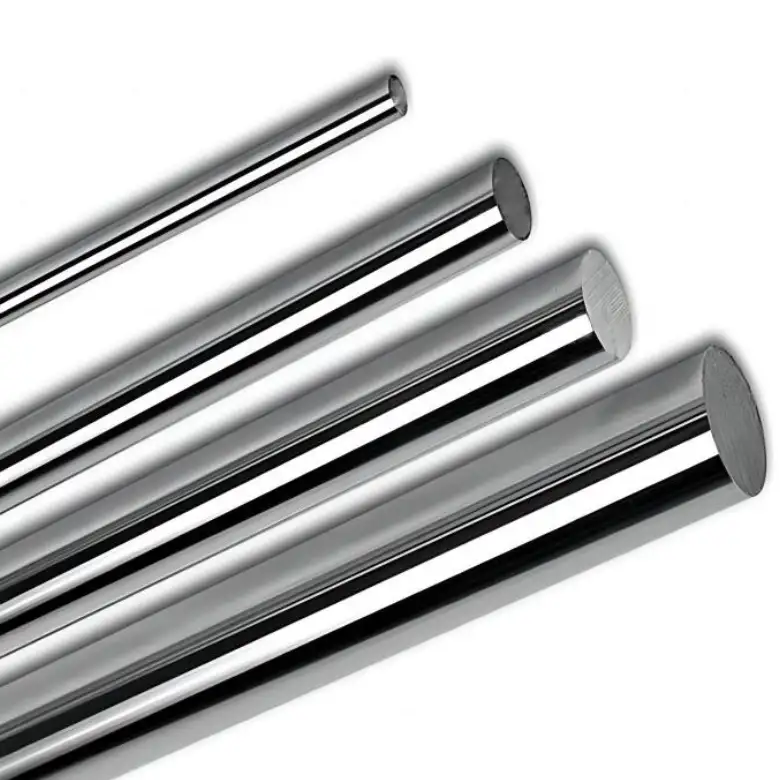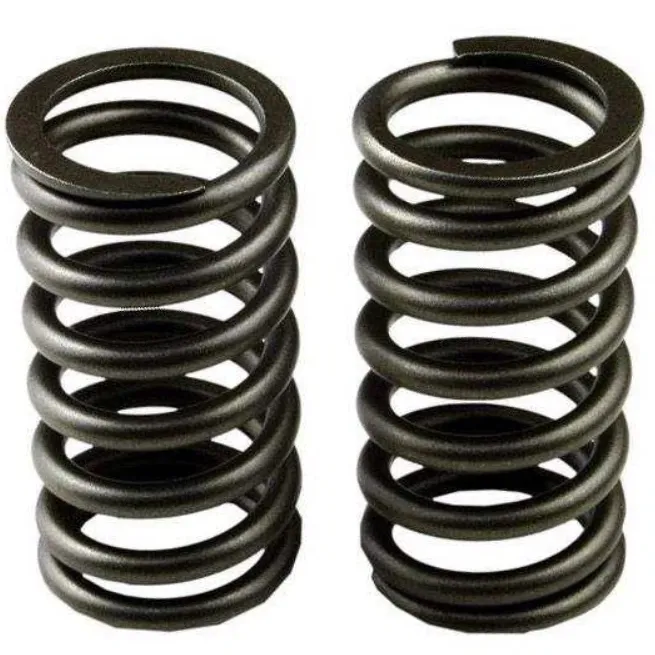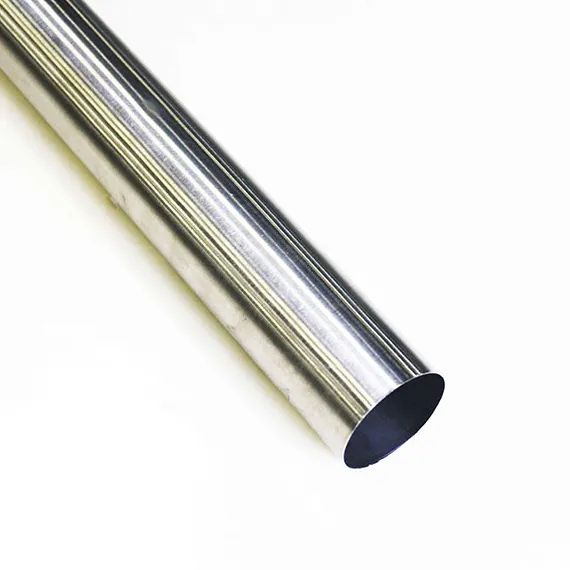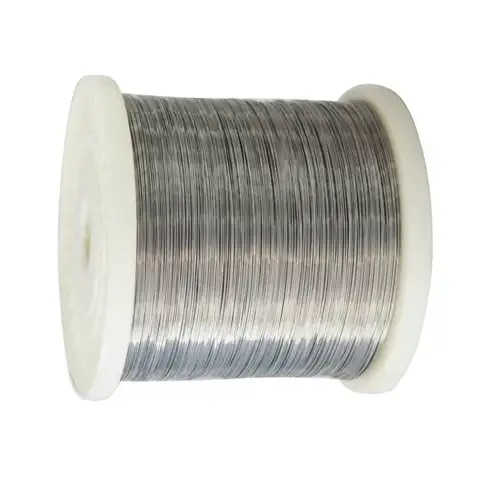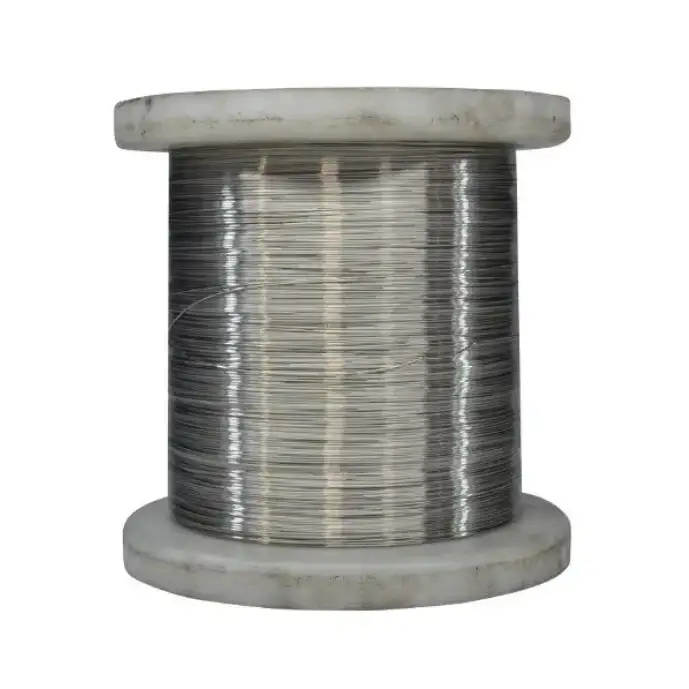INCONEL® Alloy 600 is a nickel-chromium-iron superalloy renowned for its strength, oxidation resistance, and corrosion resistance—from cryogenic up to ~2000 °F (1093 °C). At MWalloys, we offer custom Alloy 600 in plates, tubes, pipes, bars, sheets, and welding consumables—tailored to your industrial applications in aerospace, power generation, chemical, and nuclear sectors.
What is Alloy 600?
Alloy 600 (UNS N06600, DIN 2.4816) is a nickel-based superalloy containing ≥72% nickel, 14–17% chromium, 6–10% iron, plus trace elements. Its high chromium content enhances high-temperature oxidation resistance, and its nickel content provides excellent resilience in reducing environments.
specification
| Category | Property | Value / Description | Remarks |
|---|---|---|---|
| Chemical Composition | Nickel (Ni) | ≥ 72.0% | Primary constituent |
| Chromium (Cr) | 14.0 - 17.0% | Provides oxidation resistance | |
| Iron (Fe) | 6.0 - 10.0% | Balance | |
| Carbon (C) | ≤ 0.15% | ||
| Manganese (Mn) | ≤ 1.00% | ||
| Sulfur (S) | ≤ 0.015% | ||
| Silicon (Si) | ≤ 0.50% | ||
| Copper (Cu) | ≤ 0.50% | ||
| Mechanical Properties | Tensile Strength (Room Temp) | ≥ 550 MPa (80 ksi) | Minimum values; varies with form/heat treatment |
| Yield Strength (0.2% Offset, RT) | ≥ 240 MPa (35 ksi) | ||
| Elongation (in 50mm, RT) | ≥ 30% | ||
| Hardness (Annealed) | ≤ 90 HRB (Rockwell B) | Typical range: 65-85 HRB | |
| Physical Properties | Density | 8.47 g/cm³ (0.306 lb/in³) | |
| Melting Range | 1354 - 1413°C (2470 - 2580°F) | ||
| Specific Heat (20°C) | 444 J/kg·K (0.106 Btu/lb·°F) | ||
| Thermal Conductivity (100°C) | 14.9 W/m·K (103 Btu·in/hr·ft²·°F) | Increases with temperature | |
| Electrical Resistivity | 1.18 μΩ·m (708 Ω·cir mil/ft) | ||
| Modulus of Elasticity (RT) | 214 GPa (31 x 10⁶ psi) | ||
| Thermal Properties | Continuous Service Temp | Up to 1175°C (2150°F) (Oxidizing) | Limited by oxidation resistance |
| Stress Rupture Strength | 1000h @ 815°C (1500°F): ~70 MPa (~10 ksi) 1000h @ 980°C (1800°F): ~15 MPa (~2.2 ksi) |
Typical values; decreases with temperature/time | |
| Key Characteristics | Corrosion Resistance | Excellent resistance to: - Oxidation, Carburization, Chloride Stress Corrosion - Corrosion by fresh/steam water, alkalis, organic compounds |
Performs well in acidic environments (except reducing acids) |
| Oxidation Resistance | Outstanding up to 1175°C (2150°F) | Forms protective Cr₂O₃ scale | |
| Common Standards | ASTM | B166 (Bar/Rod), B167 (Pipe/Tube), B168 (Plate/Sheet/Strip), B564 (Forgings) | |
| ASME | SB-166, SB-167, SB-168, SB-564 | Boiler & Pressure Vessel Code | |
| AMS | 5681 (Wire), 5680 (Bar) | Aerospace Material Specifications | |
| EN / DIN | 2.4816 / NiCr15Fe | European Standards | |
| UNS Designation | N06600 | Unified Numbering System |
Applications
Alloy 600 excels in many industries:
-
Aerospace: exhaust liners, turbine seals, combustion cans.
-
Chemical processing: heat exchangers, condensers, heaters.
-
Power & Nuclear: reactor tubing, steam generator coils.
-
Heat-treating furnaces: retorts, muffles, trays.
-
Pulp & paper, food: evaporator equipment.
Why Choose Alloy 600?
The alloy offers:
-
Excellent resistance to oxidation up to ~2000 °F.
-
High strength retained through cold working.
-
Immunity to chloride‑ion stress‑corrosion cracking.
-
Non-magnetic and weldable via TIG/MIG/SMAW.
-
Durable fatigue and creep life.
Manufacturing & Forming
Alloy 600 can be hot-worked at 1600–2250 °F; avoid 1200–1600 °F to prevent ductility loss. Cold working strengthens the alloy, while annealing (1850–1900 °F) softens it without excessive grain growth. Welding follows standard practices with Inconel‑compatible fillers (ERNiCr‑3, ERNiCrFe‑3).
Comparison with Similar Alloys
Short sentence style mixed in:
| Property | Alloy 600 | Inconel Alloy 625 | Inconel Alloy 718 |
|---|---|---|---|
| Ni content | ≥72% | ≥58% | 50–55% |
| Cr content | 14–17% | 20–23% | 17–21% |
| Corrosion Resistance | Excellent | Excellent (pitting/oxidation) | Good |
| High-temp Strength | Good up to 2000 °F | Very Good | Excellent |
| SCC Resistance | Excellent | Excellent | Very Good |
Alloy 600 is best for combined corrosion‑temperature resistance when strength and weldability matter.
global price comparison
| Region | Form / Grade | Price (USD/MT) | Price (USD/kg) |
|---|---|---|---|
| Europe | Sheet (Germany, ex‑works) | $36,864 /MT | ~$36.86/kg |
| APAC (Japan) | Sheet (Osaka, ex‑works) | $43,912 /MT | ~$43.91/kg |
| MEA (UAE) | Sheet (Dubai, ex‑works) | $42,832 /MT | ~$42.83/kg |
| North America | Tube (ASTM B829) | $6–12 /kg | — |
| USA spot | General bulk Alloy 600 | $35.98 /kg | — |
| China (Alibaba) | Plate / Sheet (small qty) | $35–44 /kg | — |
| India | Alloy 600 bar / plate | ₹2,500/kg (~$30/kg) | ~$30/kg |
| Global retail | Pipe / Tube | $18–52 /kg (FOB China) | — |
| Form | Region / Supplier | Price Range (USD/kg) | Notes & Source |
|---|---|---|---|
| Plate/Sheet | China | $35–44/kg | Standard MOQ (2–100 kg) |
| US retail | $36.04/kg | ||
| Europe | |||
| Bar/Rod | China | $15–20/kg | |
| UK/Europe (ASTM B166 bar) | $26–35/kg | ||
| India | ₹2500/kg (~$30/kg) | ||
| Coil/Strip | India (ASTM B168 coil/strip) | — | Specifications only |
| China | $20–50/kg | Alibaba data | ||
| Wire | China | $25–35/kg (lot discounts) | Haosai Alloy | |
| China | $20–35/kg | ALibaba misc |
📌 Notes & Insights:
-
Europe (Germany) offers sheets around $36.9 /kg.
-
Japanese and Middle East markets track higher at ~$43–44 /kg .
-
USA retail is near $36 /kg ; tubes in specific ASTM listings may be lower.
-
China small-batch prices range from $35–44 /kg, with pipes in bulk at $18–52 /kg.
-
Indian market trades at around $30 /kg (₹2,500) .
Frequently Asked Questions
-
What makes Alloy 600 resistant to chloride-induced stress-corrosion cracking?
Alloy 600 contains at least 72 % nickel, which significantly reduces susceptibility to chloride stress-corrosion cracking. In fact, it’s “virtually immune” to this type of failure under typical conditions. -
Up to what temperature can Alloy 600 maintain its oxidation resistance?
It reliably resists oxidation in cyclic high-temperature environments up to about 2000 °F (1093 °C). This makes it ideal for furnace components like retorts, trays, and radiant tubes. -
Can Alloy 600 be welded without performance loss?
Yes—Alloy 600 is readily weldable using TIG, MIG, and SMAW methods. Best results come from using nickel-based filler (e.g., ERNiCr-3) and proper post-weld annealing to avoid weld degradation. -
Does Alloy 600 resist carburization and sulfide attack?
It has good carburization resistance, making it suitable for carburizing furnace atmospheres. However, it should be protected against prolonged exposure to sulfur-rich gases at high temperatures, as sulfidation may occur . -
What mechanical performance can I expect from Alloy 600?
In its annealed state, typical tensile strength is around 550–700 MPa, yield strength between 170–345 MPa, with good ductility (elongation of 35–55 %). Its fatigue resistance, especially in high-cycle applications, makes it suitable for dynamic load environments.

